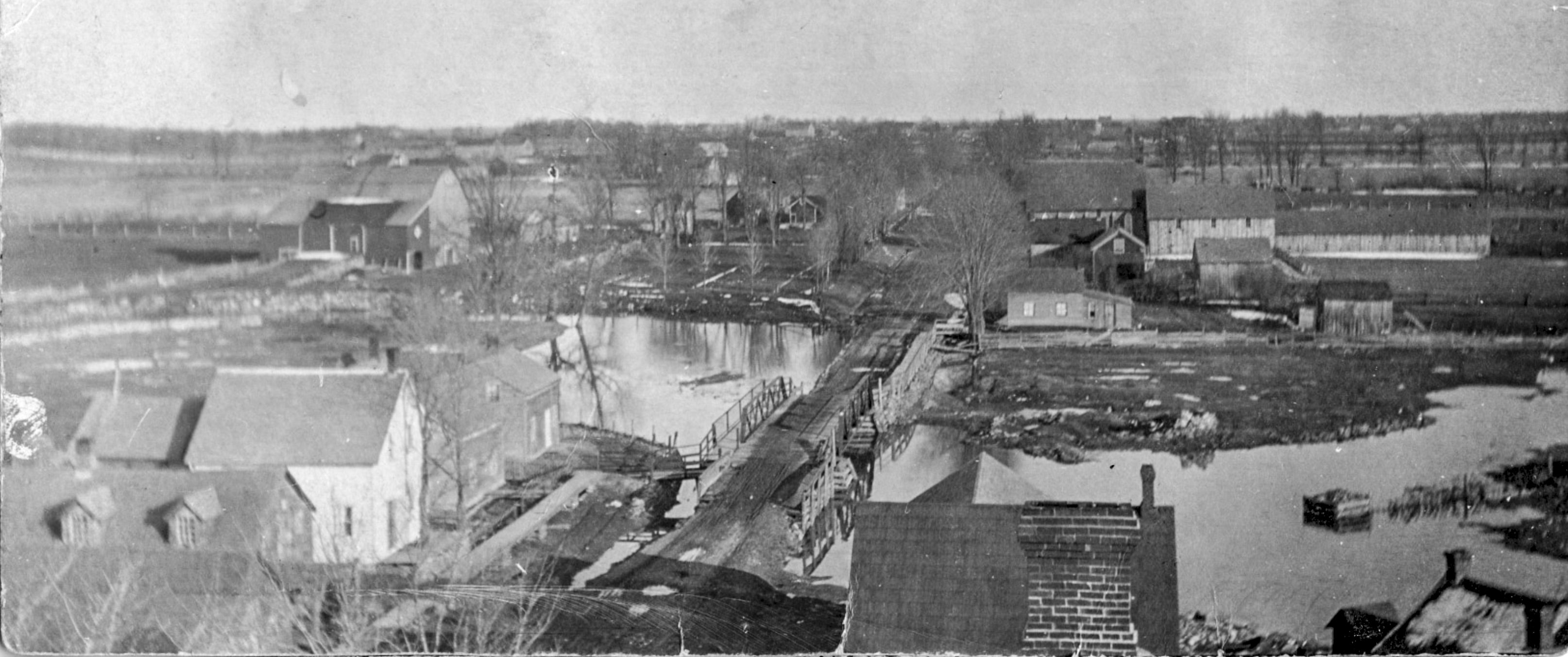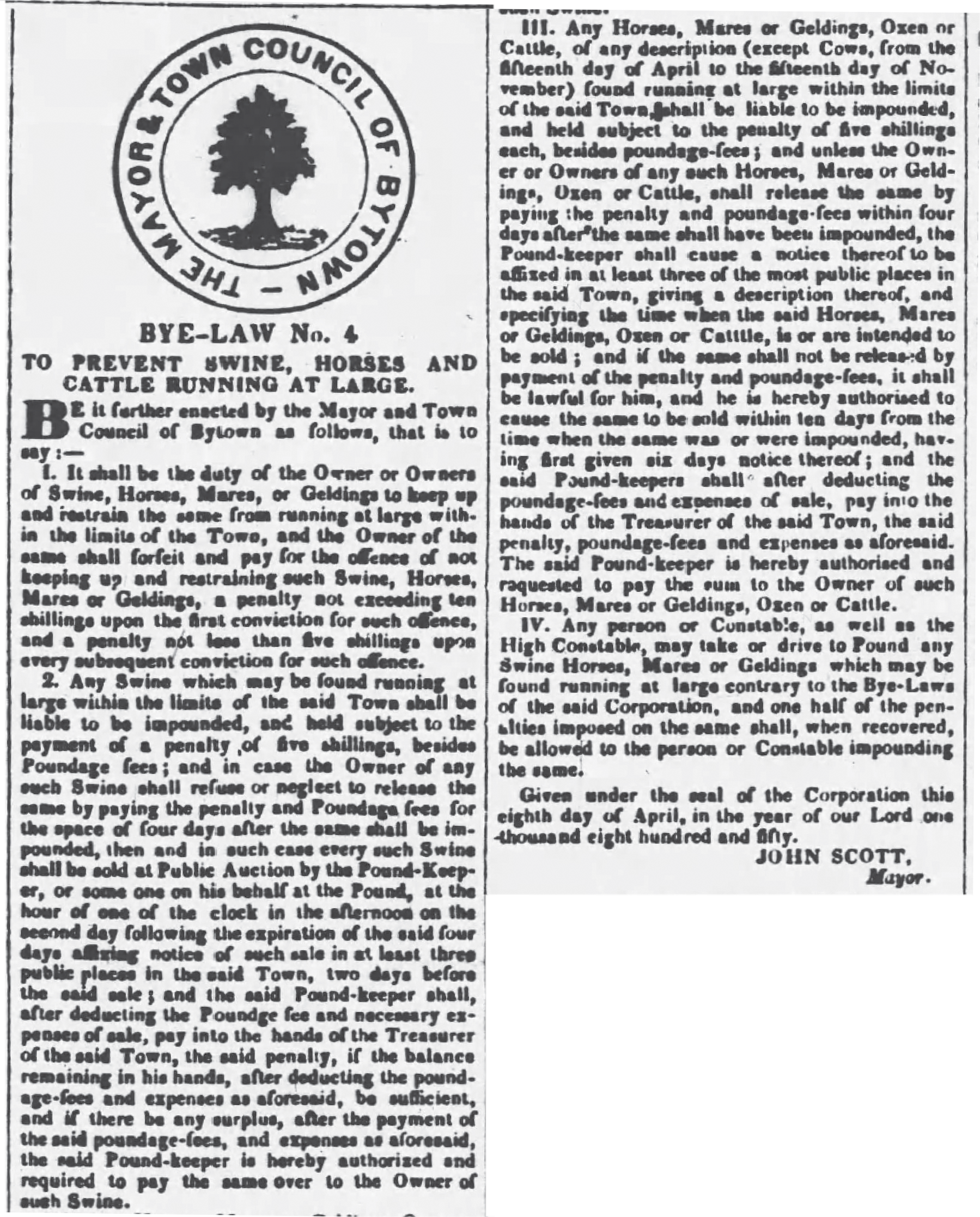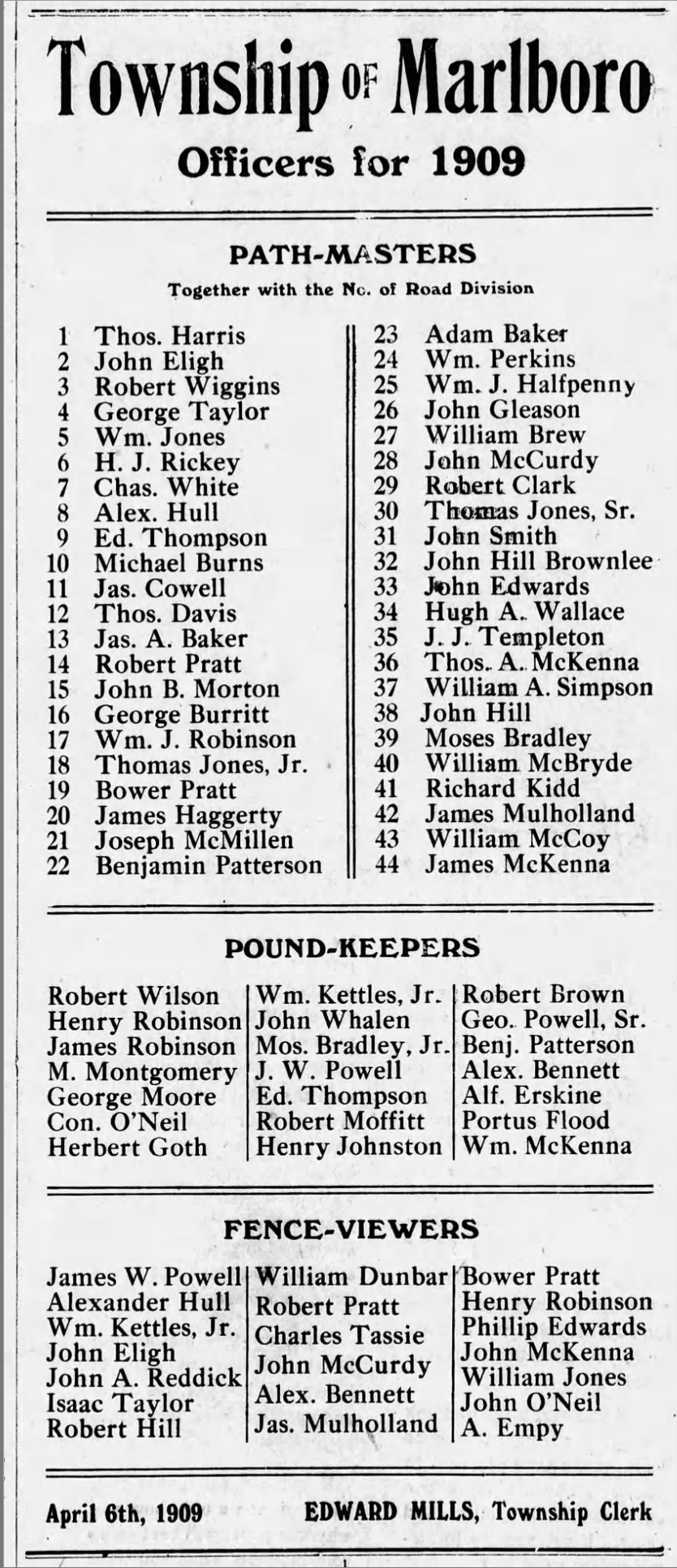Pathmasters, Poundkeepers & Fence Viewers
As settlers and settlements increased in the late 1700s and throughout the 1800s, Township Councils were formed to provide organization and oversight. And as the daily living of individual settlers increasingly "bumped up against" the activities of others, the need for particular roles in the Township emerged.
Pathmasters: In 1793 an Act of the first Parliament of Upper Canada placed all roads under the supervision of overseers, called pathmasters. Early road development was accomplished by a system of "statutory labour," which required settlers to maintain the road adjacent to their property or to work 3 to 12 days each year on road maintenance. Over time, the statutory labour system was commuted into payment of a fine in lieu of labour, creating the first source of funds for road expenditures. As road requirements developed beyond the capabilities of local orientation, toll roads were introduced.
https://www.thecanadianencyclopedia.ca/.../roads-and...

Poundkeepers: The raising of livestock was essential to survival and prosperity to settlers. However, then, as now, people differed in the manner and degree to which they controlled the movement of their animals. As described in the attached 1850 Proclamation by the Mayor of Bytown, livestock found roaming where they didn't belong were impounded and possibly auctioned if not retrieved. Their owners were also subject to fines and fees collected by the Poundkeeper according to a schedule set by the Township, as described in the attached from the Township of Nepean in 1851 (The Ottawa Daily Citizen - March 1, 1851).



